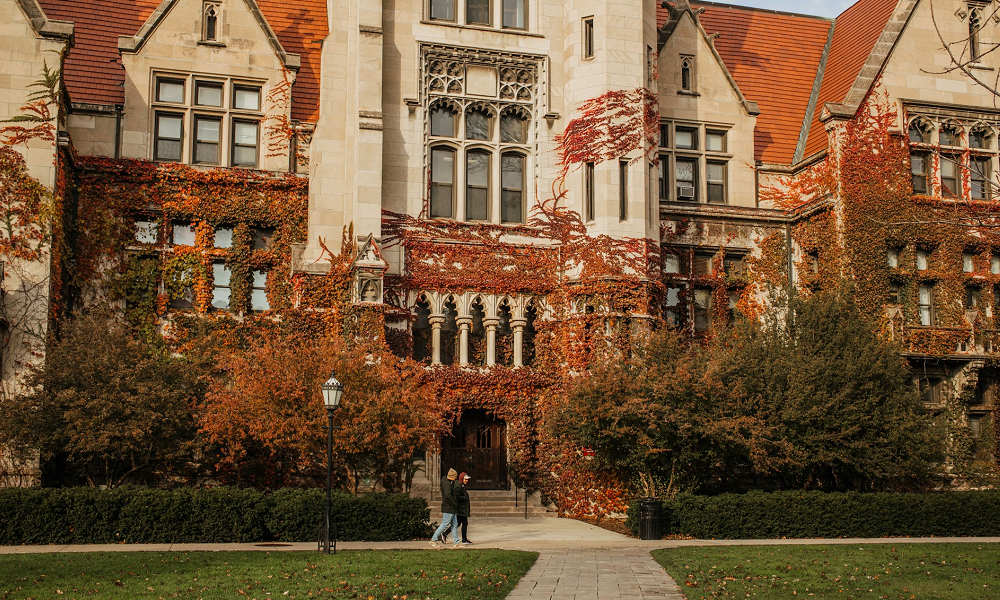Reviews
The Most Challenging Campuses Students Face

Ask any academic what students struggle with most, and you’ll likely hear the same thing: some schools simply demand more. Certain campuses consistently push students to their academic limits, whether it’s rigorous writing standards, punishing deadlines, or a culture prioritizing originality over assistance.
What makes a college truly challenging isn’t just the prestige of its name or the difficulty of its entrance exams. It’s how professors design assignments, how much writing is required, and how much support is (or isn’t) available. Some schools are known for tightly packed syllabi filled with essays, research summaries, and reflective journals that stretch students thin.
Outside observers — including academic support platforms such as EssayWriter.com — often notice trends where students encounter the greatest challenges. These insights don’t necessarily reflect student ability but instead highlight the intensity of the coursework and expectations at certain institutions.
Why Some Schools Keep Writers the Busiest
Certain schools generate more requests, not necessarily because students are less prepared, but because their professors expect near-professional levels of writing from day one. For example, assignments that reflect deep research and layered formatting requirements (APA, MLA, Chicago), annotated bibliographies, policy critiques, and even presentation slides with speaker notes. These tasks aren’t just about writing — they require synthesis, citation fluency, and an ability to anticipate how instructors assess work. It’s this kind of institutional rigor that makes some campuses truly stand out.
Below, we’ve ranked and reviewed several colleges and universities that consistently challenge their students the most, based on volume, writing complexity.

1. University of Chicago: The Core Curriculum Gauntlet
The University of Chicago is famous for its intellectual intensity and infamous for its writing-heavy Core Curriculum. From philosophy to physics, students must express their understanding through structured argumentation. Every course seems to double as a writing seminar, and professors expect analytical depth far beyond the typical undergraduate level.
2. Columbia University: High Stakes, No Extensions
Columbia may sit in the heart of New York City, but the academic vibe inside its libraries is all pressure, no chill. The Core Curriculum and fast-paced semesters combine to force students to juggle literary analysis, lab reports, and long-form essays — often simultaneously. What pushes students toward external help isn’t the material but the relentless pace and almost nonexistent deadline leniency. With expected classes packed back-to-back and extracurriculars, Columbia’s demand for polished, citation-heavy work leaves many students gasping for time.
3. Georgetown University: Writing-Intensive Across All Majors
Georgetown has a reputation for training future policymakers, lawyers, and diplomats, which is evident in their writing expectations. Whether you’re a Government major or studying International Relations, written assignments are treated as if they’re going to land on a senator’s desk. Students face weekly position papers, briefing memos, and policy analyses requiring data fluency and persuasive clarity.
4. University of California, Berkeley: Truly Research-Heavy
Berkeley students benefit from elite-level faculty, but often at the cost of accessibility. With large class sizes and overstretched TAs, students frequently feel left to figure things out independently, especially in writing-intensive social science and humanities programs. At the undergraduate level, term papers are treated like graduate theses. The demand for independent thought and extensive source integration creates a perfect storm where even strong writers need feedback unavailable through campus support.
5. New York University: Creative Fields, Academic Rigor
NYU blends creative ambition with academic pressure. Students in programs like Journalism, Business, and Performing Arts often report intense pressure to produce reflective, analytical work on tight timelines. Unlike other schools where a 10-page paper might conclude a course, NYU instructors often demand multiple written reflections, case studies, and research assignments — all woven into project-based courses. The workload is layered, and the grading is ruthless.
6. Northeastern University: Fast-Paced, Research-First
With its co-op structure and rapid-fire quarter system, Northeastern students don’t have the luxury of easing into college writing. Professors expect real-world application, strong thesis formation, and error-free formatting across disciplines. STEM students are often shocked by the writing requirements embedded in lab reports and technical papers.
7. University of Michigan: The Proof Is in the Paper
With its blend of massive lecture halls and advanced research labs, Michigan pushes its students to prove their understanding on paper. That means case studies in business school, position papers in public policy, and extended literary critiques in the humanities. Students may have ideas, but getting them onto the page with coherence and polish is where they hit roadblocks.
The Common Thread: Pressure Without Enough Process
What unites all these institutions isn’t necessarily their subject matter — it’s the intensity of expectations paired with limited support. In many cases, students know the content but don’t yet have the academic fluency to express it within the confines of formatting styles, peer-reviewed research, or persuasive structure.
Academic writing isn’t just about answering questions. It’s about developing arguments, defending ideas, and adhering to style conventions that even professionals take years to master. And while these colleges produce highly capable graduates, they often assume writing mastery without providing the steps to get there.
Final Thoughts
The rigor at these colleges helps prepare students for demanding careers and creates steep learning curves. Understanding which campuses are the most writing-intensive can help prospective students prepare for the expectations they’ll face and appreciate that seeking feedback, peer review, or external resources is often a natural part of navigating elite academic environments.

-

 World1 week ago
World1 week agoEthiopian volcano erupts for first time in thousands of years
-

 Health2 days ago
Health2 days ago8 kittens die of H5N1 bird flu in the Netherlands
-

 Legal7 days ago
Legal7 days agoUtah Amber Alert: Jessika Francisco abducted by sex offender in Ogden
-

 US News6 days ago
US News6 days agoExplosion destroys home in Oakland, Maine; at least 1 injured
-

 Health6 days ago
Health6 days agoMexico’s September human bird flu case confirmed as H5N2
-

 Legal3 days ago
Legal3 days ago15 people shot, 4 killed, at birthday party in Stockton, California
-

 World7 days ago
World7 days agoWoman killed, man seriously injured in shark attack on Australia’s NSW coast
-

 Health6 days ago
Health6 days agoMarburg outbreak in Ethiopia rises to 12 cases and 8 deaths




